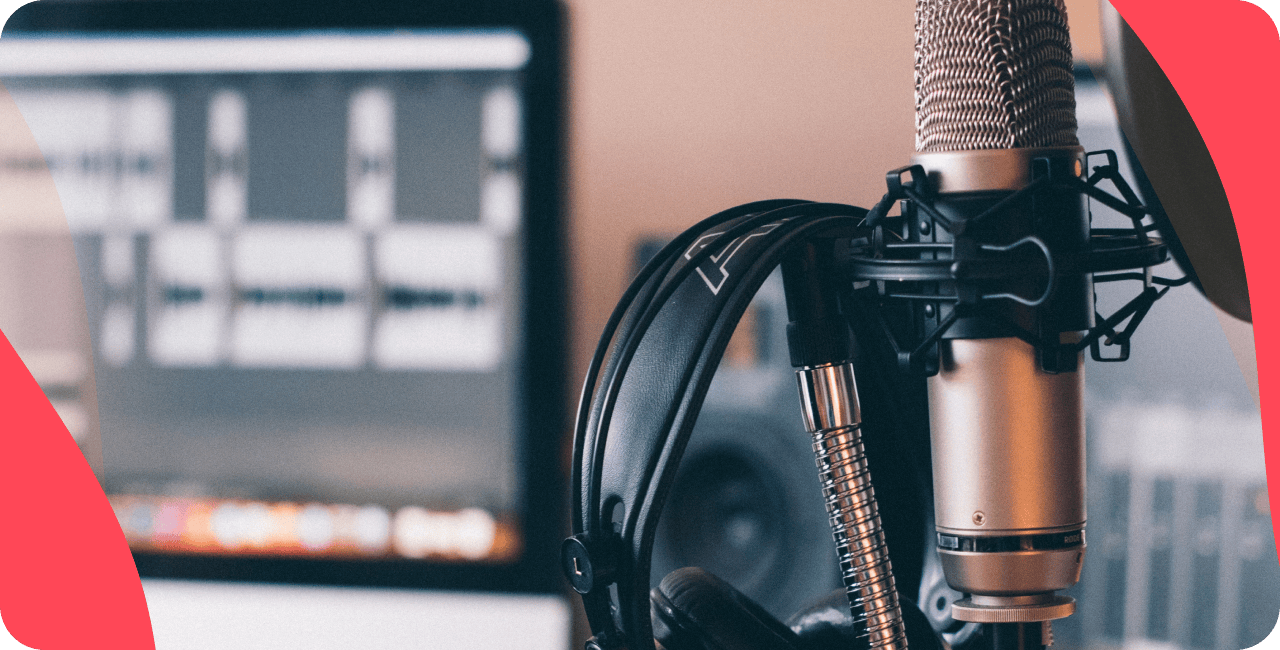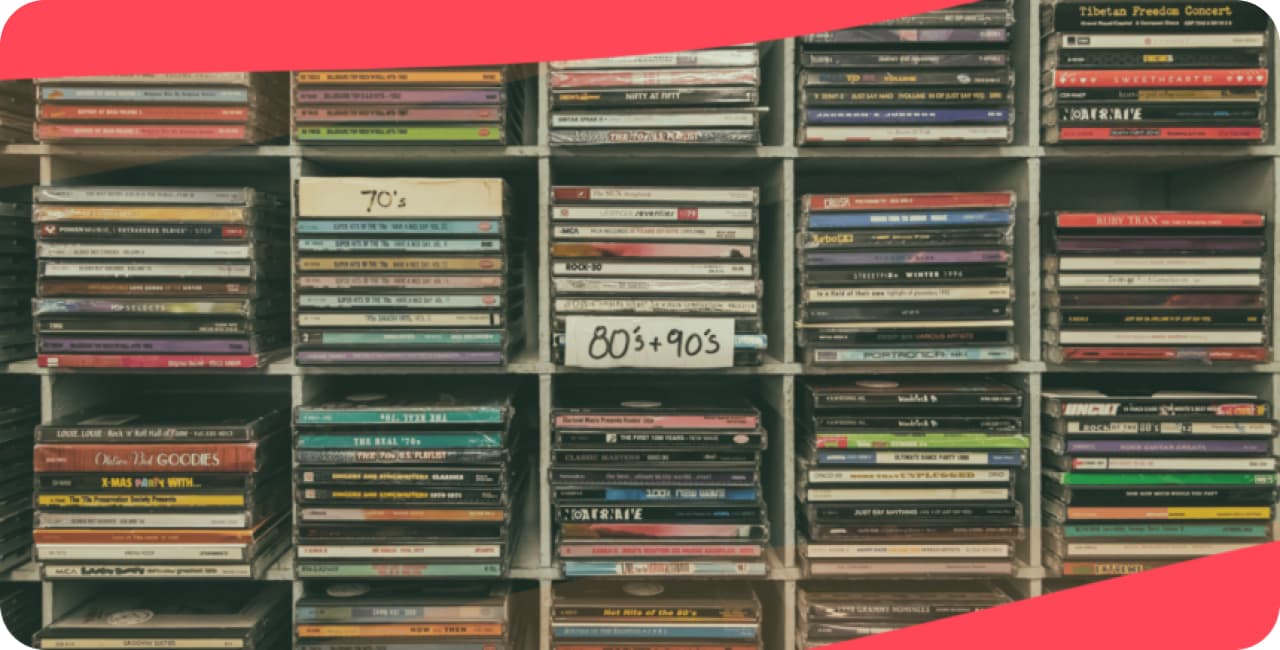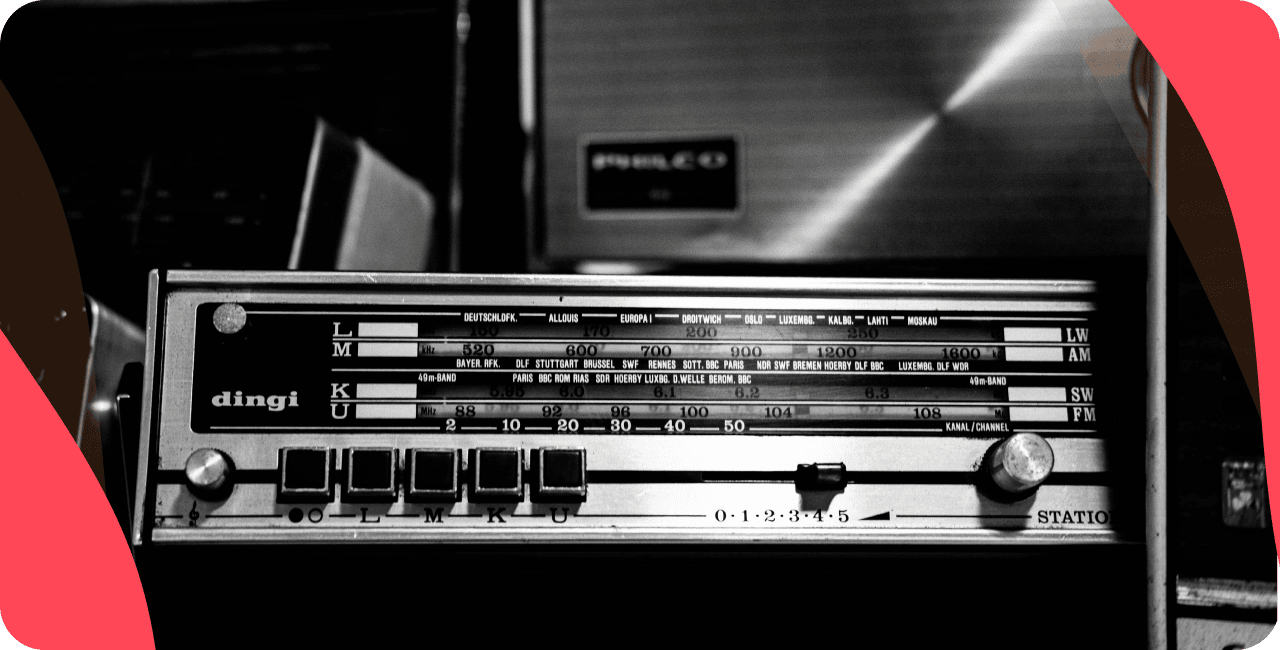In recent years, the surge in internet accessibility has catalyzed the remarkable rise of internet radio, transforming it into a staple of digital culture and communication. This digital evolution has not only expanded the boundaries of broadcasting but has also introduced a new realm of audio entertainment and information dissemination. Internet radio, with its global reach and diverse content, stands at the forefront of this digital revolution, challenging traditional broadcasting norms and reshaping our audio consumption habits. As we delve into the essence of internet radio, its operational mechanics, and its prospective future, we unravel a digital phenomenon that transcends geographical limitations and conventional frequency bands. Join us on this explorative journey as we demystify internet radio and forecast its trajectory in the ever-evolving digital landscape. So what is internet radio, and how does it work?
- What Is Internet Radio
- Difference between Digital Radio and Internet Radio
- How Does Internet Radio Work?
- What Are the Advantages of Online Radio?
- The Future of Internet Radio
- Embracing Internet Radio: How to Get Started
- Conclusion
- FAQ
1/ What is Internet Radio?

It’s fascinating how quickly things evolve, isn’t it? Just when we thought radio was all about catching signals through an antenna, along came internet radio, changing the game entirely. This isn’t your grandma’s radio, though the nostalgia of tuning in might still be there. Internet radio, or as some call it, web or online radio, is like the cool new kid on the block, making waves by streaming audio over the web, reaching every corner of the globe where there’s internet.
What Is Internet Radio?
So, what’s the deal with internet radio? Imagine you’re chilling in a café in Paris, but you’re craving your favorite station from back home in Tokyo. Traditional radio waves wouldn’t make the cut, but internet radio? No problem. It’s not tied down by frequency bands; it’s as free as the internet itself, flying through digital signals to bring you a piece of home, no matter where you are.
Internet radio is all about choices and convenience. Whether it’s through an app on your phone or a dedicated internet radio device, it’s incredibly user-friendly. You could be listening to jazz one minute and switch to a hard rock radio from halfway across the world the next. It’s like having a magic radio that knows no bounds, offering everything from obscure indie bands to the most popular hits.
How Internet Radio Works: A Technical Insight
Let’s dive a bit into how this magic happens, shall we? It all starts with the audio – could be a live DJ spinning tracks in real time or a perfectly curated playlist for those insomniac hours. This audio then gets transformed into a digital format, kind of like how your favorite CD turned into an MP3 playlist.
Once it’s all digitized, it’s sent off to a server that acts like a super-efficient post office, delivering these audio streams to anyone who wants to listen, anywhere, without any hiccups. And the best part? You don’t have to wait for a download; it streams live, giving you that real-time vibe of traditional radio.
The tech behind this involves some cool protocols and systems like SHOUTcast or Icecast, ensuring that the stream reaches you in the best quality possible, adapting in real-time if your internet decides to be a bit sluggish. It’s like having a smart radio that adjusts itself to give you the best listening experience, no matter what.
In wrapping up, diving into internet radio is a bit like exploring a new world where the possibilities are endless. It’s not just about listening to music; it’s about connecting with sounds, stories, and cultures from across the globe, all at the click of a button. It’s amazing how a simple concept like radio has evolved into this vast digital landscape, and I’m here for the ride. How about you?

2/ Difference between Digital Radio and Internet Radio
Navigating the digital landscape of radio broadcasting often feels like choosing between two pathways in a vast forest of sound—one leads through a well-trodden, clear path (digital radio), and the other ventures into a sprawling network of trails (internet radio), each offering its unique journey through the world of audio.
Understanding the Technical Divide
First up, let’s talk tech. Digital radio, with its sleek digital signals, promises a crystal-clear listening experience, free from the static and interference that often plagues AM/FM broadcasts. It’s like having a direct line to the studio, with sound quality so sharp you could almost see the notes floating in the air. But, there’s a catch – your journey is bound by the reach of these signals. Stray too far, and you might just lose the connection.
Internet radio, on the other hand, is a creature of the web. It doesn’t care where you are or what time it is. As long as you’ve got an internet connection, you’re in. It streams your favorite beats, talks, and tales directly to your device, no matter if you’re lounging at home or trekking in the Himalayas (assuming you’ve got Wi-Fi up there!).
Choosing Your Digital Soundscape
Now, onto the real question – which trail do you take? If you’re the type who loves crisp sound quality and enjoys the local vibe of broadcasts but doesn’t mind staying within a certain range, digital radio might just be your jam. It’s like having a reliable guide who knows the terrain inside out but sticks to a defined path.
But if you’re all about exploring every nook and cranny of the audio universe, internet radio is your gateway to an endless adventure. Want to dive into a live broadcast from a jazz club in New Orleans or catch up on the latest news from a webradio in Tokyo? Internet radio’s got you covered. It’s for the explorers, the curious souls who want to discover every melody and story the world has to offer, without boundaries.
In the end, the choice between internet and digital radio isn’t just about how you listen; it’s about what kind of audio journey you want to embark on. Do you stick to the clear, crisp paths laid out by digital signals, or do you dive into the boundless realms offered by the internet? Whichever you choose, a rich world of sound awaits.

3/ How Does Internet Radio Work?
Embarking on the journey of setting up your own internet webradio is like planting your flag in the digital world. It’s a statement that says you’ve got something unique to offer, whether it’s music that makes people groove, talk shows that spark thought, or stories that transport listeners to another world.
Getting Started with Internet Broadcasting
Diving into internet broadcasting might seem daunting at first, but it’s actually more accessible than many realize. Here’s a simplified roadmap to get your station live:
- Choose Your Niche: What’s your passion? Jazz, indie rock, classic literature readings, or maybe insightful tech discussions? Pinning down what you want to broadcast is the first step to creating a station that resonates with listeners.
- Get the Right Gear: You don’t need a Hollywood studio, but a few basics will go a long way:
- A decent computer
- Reliable internet connection
- A quality microphone
- Headphones
- Broadcasting software
- Select Your Broadcasting Software: There’s a variety of broadcasting software out there, from simple setups for beginners to more complex systems for the pros. Choose one that matches your tech comfort level.
- Secure Your Music Licenses: If music is part of your game, make sure you’re playing by the rules and get the necessary music licenses. It’s all about respecting the artists and staying legal.
- Set Up Your Streaming Service: You’ll need a streaming service to broadcast your content over the internet. There are plenty of options, each with its own set of features, so pick one that suits your station’s needs.
- Create a Website or App: Give your webradio a digital home where listeners can find you, learn more about your station, and tune in. It’s also a great space for interacting with your audience.
Crafting Your Station’s Identity
Once you’ve got the technical side sorted, it’s time to think about how you’ll stand out in the vast sea of internet radio:
- Develop Your Brand: What’s the vibe of your webradio? What makes it different? Your logo, station name, and overall branding should reflect the essence of your broadcast.
- Engage with Your Audience: Interaction is key. Use social media, your station’s website, or even live chat during broadcasts to connect with listeners. It turns passive listening into an active, community experience.
- Consistency is Key: Regular broadcasting schedules keep listeners coming back. Whether it’s daily, weekly, or bi-weekly shows, consistency helps build a loyal audience.
Setting up your webradio is an exciting adventure that blends creativity with technology. With the right preparation and a dash of personality, you can create a space that not only broadcasts content but also builds a community. So, what are you waiting for? The airwaves of the internet are ready for your voice.
If you’re interested in going further into the subject, we invite you to take a look at this article that explains how Internet radio works.
4/ What Are the Advantages of Online Radio?

Tuning into online radio opens up a world where the airwaves know no borders, where every genre, every beat, and every story is just a click away. It’s like having a magic portal to global sounds and vibes, offering a mix of benefits that traditional radio can’t quite match.
Access to a Global Station Library
Imagine having the entire world’s music and talk shows at your fingertips. That’s the reality with internet radio stations:
- Endless Choices: From the heart-pounding beats of Brazilian samba to the intricate tales of Scottish folklore, online radio offers a smorgasbord of content that traditional radio’s frequency bands can’t.
- Discover and Explore: Stumble upon niche genres or indie bands you’d never hear on mainstream channels. Online radio is your ticket to explore.
- No Geographic Limits: Whether you’re homesick for your hometown news or craving the latest K-pop hits, online radio brings global content to your local device.
Superior Signal Stability and Quality
Gone are the days of adjusting antennas to get a clearer signal. Online radio offers:
- Crystal Clear Audio: Digital streaming means you get the audio as it’s meant to be heard, without interference or fuzz.
- No More “Out of Range”: As long as you’re connected to the internet, your favorite station is too. Say goodbye to losing signal in tunnels or remote areas.
- Adaptive Streaming: Online radio can adjust the quality based on your internet speed, ensuring seamless listening even on slower connections.
Enhanced Features and User Experience
Online radio isn’t just about listening; it’s an interactive, personalized experience:
- Customizable Playlists: Many online stations let you tailor your listening experience, whether it’s skipping tracks or creating personalized playlists.
- Interactive Platforms: Engage with DJs and fellow listeners through chat features or social media integration, turning listening into a community event.
- Convenience at Its Best: With mobile apps, smart speaker integration, and desktop access, your favorite stations and podcasts are accessible wherever, whenever.
The allure of online radio lies not just in its vast library or superior quality but in the way it redefines listening itself. It transforms the passive act of tuning in into an active journey of discovery, interaction, and unparalleled convenience. In the ever-evolving landscape of digital media, online radio stands out as a beacon of innovation and personal connection.
5/ What is the future for Internet Radio?
Is online radio the future of broadcasting? According to marketing and media reports, online radio stations will play a significant role in our future. They’re going to revolutionize how we get information and consume entertainment.
There was a period when radio listening was limited to electronic devices equipped with FM/AM receivers. Thanks to the Internet, radio is now available on all connected devices. Whether you use your favourite pair of wireless headphones for android, or your trusty smart speakers, there are many listening options to suit everyone’s needs.
On smartphones, smart TVs, car infotainment systems, smart speakers, and more, you can access web radio stations as well as simulcasts for traditional broadcasters.
While many people today use smartphones, phones, and computers to stream digital entertainment, there is still a limit to what you can do with online radio. For example, the possibility of having to pay for data usage when using the internet on the go makes online radio less appealing.

6/ Embracing Internet Radio: How to Get Started
Diving into the world of internet radio is an exciting endeavor, offering a unique blend of creative freedom and technological innovation.
Launching Your Own Channel with RadioKing
RadioKing provides a streamlined platform for launching your internet radio presence:
- Ease of Use: Setting up is straightforward, catering to both novices and seasoned broadcasters.
- Customization: Tailor your channel’s look and sound to match your brand or personal style.
- Interactive Features: Engage your audience with interactive elements like live chats and social media integration.
- Analytics: Track your growth and understand your listeners with detailed analytics.
Starting your internet radio journey with RadioKing means you’re not just broadcasting content, but also building a community around your passion for audio.
Conclusion
The Enduring Impact of Internet Radio
So, what is internet radio? Online radio stands as a testament to the power of digital innovation, weaving a new tapestry of audio entertainment that transcends traditional boundaries. Its growth reflects a shift towards more personalized, accessible, and diverse media consumption. As we navigate the ever-changing digital landscape, internet radio continues to adapt, offering new ways to connect, entertain, and inform. Its enduring impact lies in its ability to bring the world closer, one stream at a time, ensuring that no matter where we are, we’re never out of tune with the global beat.
FAQ
Can I access internet radio on my smartphone?
Absolutely! Whether you’re using an Android device or an iPhone, you can easily tune into internet radio through various apps or by visiting websites that offer live streaming services. It’s all about wireless convenience, allowing you to enjoy your favorite audio content on the go.
What’s the difference between AM/FM radio and internet radio?
Traditional AM/FM radio relies on direct airwaves and is limited by range and frequency. Internet radio, on the other hand, uses digital signals transmitted over the internet, offering a broader range of content, superior sound quality, and global access.
Do I need special equipment to start broadcasting my content?
Starting your own broadcast is simpler than you might think. Basic requirements include a computer, a stable internet connection, a quality microphone, and broadcasting software. There’s no need for heavy, expensive equipment to get your voice heard across the digital spectrum.
How can I find internet radio channels that fit my interests?
With thousands of channels available, platforms like RadioKing offer search functionality to explore genres, languages, and themes. Whether you’re into jazz, tech talk, or learning languages, there’s a wavelength for everyone.
Is internet radio only about music?
Not at all! Internet radio encompasses a wide array of content including talk shows, podcasts, news broadcasts, and even educational segments. It’s a versatile medium that caters to a diverse audience with varying interests.
Can I interact with broadcasts on internet radio?
Yes, many internet radio platforms offer interactive features such as live chats, social media integration, and even options to vote on your favorite songs. It’s a dynamic way to engage with content and connect with like-minded listeners.
Are there any costs associated with listening to or broadcasting on internet radio?
Listening to internet radio is generally free, though some premium platforms might offer additional features for a fee. For broadcasters, costs can vary depending on the software and streaming services used, but there are affordable options available for those just starting out.
How does internet radio handle signal stability and quality?
Thanks to digital transmission and adaptive bitrate streaming, internet radio provides a clear and stable listening experience, even if your internet connection varies. This technology ensures that you enjoy high-quality audio without interruptions.
So, now that you know what is internet radio, are you ready to create your own station? Launch your free 14-day trial with RadioKing!
